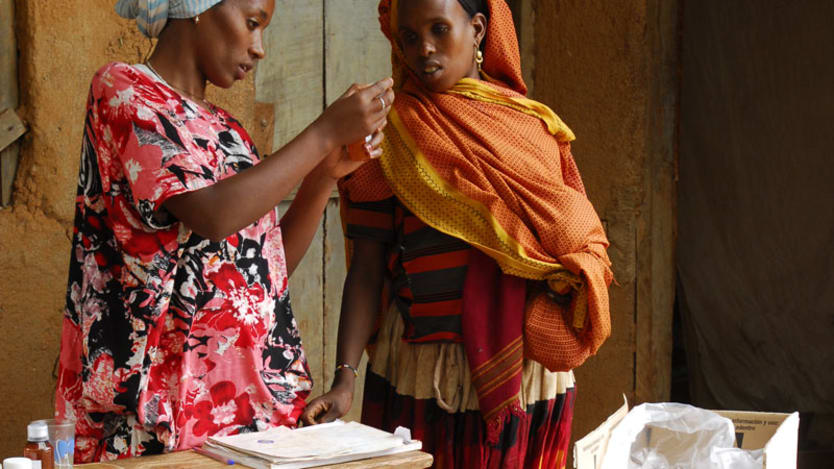
Around the world, nearly 1 million children under 5 die each year from pneumonia, with these deaths occurring almost entirely in the developing world. Despite the death toll, a highly effective and inexpensive treatment exists: amoxicillin. Advances in medical technology have enabled the development of child-friendly amoxicillin dispersible tablets, which quickly treat the illness’ worst symptoms and vastly reduce the chance of death.
Why then, if there is a cheap, effective treatment, are so many children still dying of pneumonia?
The answer, simply enough, is access. For most illnesses in developed countries, well-functioning markets exist to ensure that the right treatments are available to those who need them. However, for children in poor communities most affected by pneumonia, access to even the most affordable and proven antibiotics is abysmal.
Results for Development Institute, and others, have closely studied the success of relationships that exist throughout the health marketplace — including the complex interplay of manufacturers, funders, country governments and other key actors. We focus on leveraging the power of markets to increase access to lifesaving medicine and other technologies for the poor.
We are now using this practice — market dynamics — to rapidly identify and address key barriers to scaling up amoxicillin dispersible tablets, or amox DT.
One of the most critical gaps we found was financing. Here, amox DT faces a seeming paradox: It is so affordable (a course of treatment costs less than a dollar in most countries), that it is not on donors’ agendas, which usually focus on higher-priced treatments for HIV and AIDS, malaria and tuberculosis. At the same time, it is still too expensive for many families in low-income countries, particularly when you look at the full array of products for issues such as maternal, newborn and child health that they are expected to buy. In Ethiopia, for example, the government strives to provide subsidized or free essential drugs to its people, but it is only able to spend less than $0.50 on all medicines per citizen each year.
While some key donors had provided specific funding for amox DT in the past, the vast majority was set to end abruptly with the close of the global Millennium Development Goals period this year. This “funding cliff” threatens to reverse the market improvements and impact achieved.
R4D’s market dynamics practice, together with other partners, urgently made an evidence-based case to donors for time-limited funding for amox DT to address the cliff. Based on this, key donors are rapidly mobilizing resources to scale up access to amox DT in several countries that have the highest number of children dying from pneumonia. These critical resources will fund millions of treatments and translate into many thousands of deaths averted.
Much more needs to be done to sustain and broaden such gains. Reducing preventable deaths requires a concerted effort to align supply and demand forces. To that end, we are ensuring that critical policies are updated to reflect amox DT as the priority treatment for childhood pneumonia, making business cases to manufacturers and distributors to invest in registering amox DT at the country level, supporting the market to forecast demand in a robust manner, and working to secure sustainable funding for amox DT above and beyond what has already been committed.
We are very hopeful that the coming years will see a dramatic expansion in the availability of childhood pneumonia treatments, which can save the lives of countless children globally.
To read additional content on innovation, go to Focus On: Innovation in partnership with Philips.
Search for articles
Most Read
- 1
- 2
- 3
- 4
- 5









